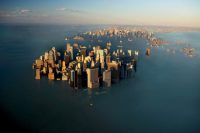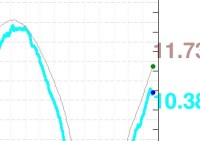There is something in our makeup that makes us appreciate hard work. When we admire the pyramids at Giza, or the fine chinese lacquerware, we can imagine the effort that must have been involved. Not just the muscle – but the discipline – lifetimes of work.
When I was a teenager, I spent many hours drawing – and I got pretty good but at some point, I think I was 19, I just stopped. Why? I think I looked at my creations and compared them with photographs and found them wanting. What was the point of photo-realistic drawing in a world full of cameras? It occurred to me that of course I was still impressed with work like that of Chuck Close, but I could not understand why. Not only does he bring realism to it’s logical extreme, but then he takes to tricks like using how our eyes merge small dots to compose images. Why is this trickery impressive? It goes beyond realism, it impresses us with it’s cleverness, rather than it content – the content becomes pretty much irrelevant.
So we are impressed not only by the evidence of labour, but of cleverness. However, when I think about what I achieve in life, I do not want to be known for simply being hard working, or clever, but rather for what I actually achieve. Simply drawing well demonstrates an ability, but unless that ability is then applied to important work: protecting the environment, mitigating injustice, that sort of thing, or at least to inspire others to do so, it could be considered pure vanity.
So I gave up on drawing. I am a bit older now and have come to re-evaluate this position with the benefit of a few more years.
One thing I have learnt (from my closest family who turned out, as luck would have it, to be talented artists) is that there is more to art than my painfully logical mind wants to admit. I can obviously not explain art in a nutshell – besides, like so many things worth knowing one really needs to find this out for oneself.
What I want to focus on here, as usual, is the scientific approach to art, and to start I will make a controversial claim…
Art taps into instincts, and does not understand itself.
Think of a beautiful singing voice. It is clearly possible to play the heartstrings with the right voice. Even if the song were written by someone else, one would struggle to argue that the songwriter or singer can explain why the song plays the heartstrings. I venture that this is similarly true for beauty.
On the other hand, the field of science progressing fastest of late is the study of the human mind. We are only just starting to understand its complex mechanisms, and if a good neuroscientist is happy to admit we are scratching the surface, then it is probably fair to say the poet is playing the instrument of the mind the way most people use a computer – without a full understanding of its workings.
Without insight into the workings of a system, the poet is reduced to trial and error, treating the mind like a black box, poking it and prodding it and seeing the response. While this type of analysis has revealed much about the mind, it is necessarily lacking and frequently runs into inconsistencies that cannot be explained.
As our ancestors have interacted for millennia, we have developed very strong insights for how the mind works and instincts about how to manipulate it; science is still playing catch-up to what every mother, every teenager or anyone with heartache already knows.
However, we are now rapidly approaching the stage when science will start to ‘have an opinion’ about the merit of Shakespeare or Puccini – observing in vivid detail how stories or melodies act to create virtuous cascades in the mind.
So if this analysis is fair, what are the implications? Does it render the arts any less valuable? No, let me explain.
The analysis suggests that the arts are the field of emotional manipulation, developed as an emergent* ability, a field that has been inaccessible to the sciences due to the complexity of the mind – but will not remain so. The arts pull on thousands of years of learning about the human mind, what impresses, what inspires, what angers and what calms. These learnings will not be rendered invalid, they will simply be explained.
Perhaps the artist in you is reviled by this possibility, perhaps the opposite – the emotions will still be real and we will be able to drive them all the better.
I personally suspect there is merit in the vagueness of art. Some of my favourite songs seem to lose their appeal when I finally learn all the lyrics and find them more mundane than I had imagined.
Perhaps the arts can just ignore the march of science?
=========================
Footnotes:
*Emergence is the phenomena of complexity (such as the arts) developing as a side effect of simpler lower order phenomena (emotional stimulus & response). It implies the higher order phenomena was not designed, is not deliberate and therefore cannot credit anyone (or itself) for its merits.


